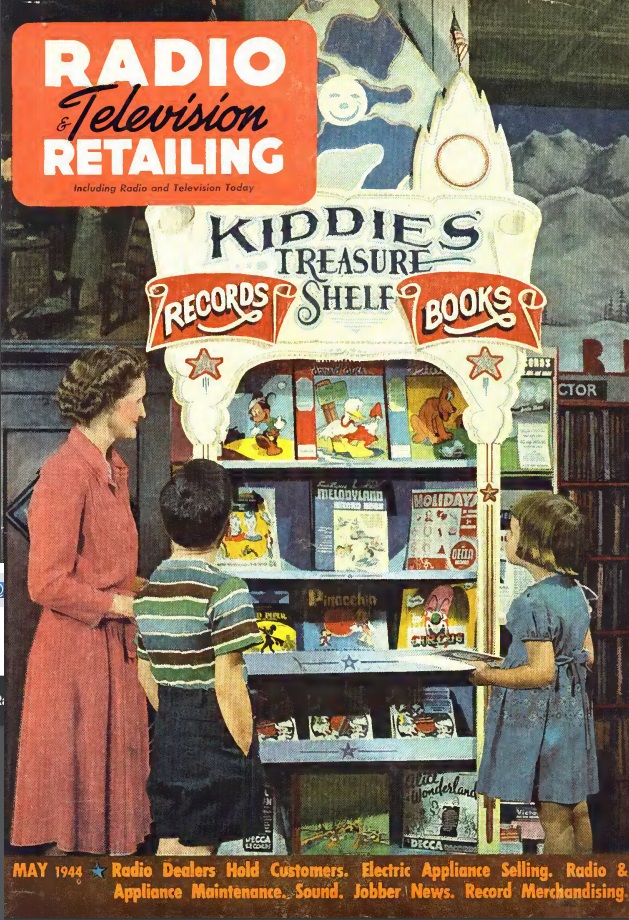 With manufacture of civilian radios being suspended for the duration of the war in 1942, radio dealers had to seek other avenues to augment their income. Of course, servicing sets became especially important, but dealers also diversified, and that often meant selling records. Shown here, on the cover of the Radio Retailing for May 1944 is the colorful record display at Paramus Tire Exchange, 150 E. Ridgewood Ave., Ridgewood, N.J. The unusual name for a radio store (much less a kids’ record store) is explained by the fact that owner Cy Jacoby had diversified into the radio business in the 1920’s. The article noted that he was one of the many automotive men who took on radio way back when lots of music merchants were not interested.”
With manufacture of civilian radios being suspended for the duration of the war in 1942, radio dealers had to seek other avenues to augment their income. Of course, servicing sets became especially important, but dealers also diversified, and that often meant selling records. Shown here, on the cover of the Radio Retailing for May 1944 is the colorful record display at Paramus Tire Exchange, 150 E. Ridgewood Ave., Ridgewood, N.J. The unusual name for a radio store (much less a kids’ record store) is explained by the fact that owner Cy Jacoby had diversified into the radio business in the 1920’s. The article noted that he was one of the many automotive men who took on radio way back when lots of music merchants were not interested.”
The address proved to be a good one from a merchandising point of view. With the inability to sell radios (or tires) during the war, Jacoby put together this display. In fact, since the shop was wired with intercoms, he even put a speaker behind the display and would speak to kids as the looked at the display of books and records.
 The magazine warned of another kind of diversification that was illegal. Some dealers were buying broken radios and using the parts to rebuild new sets. In some cases, the rebuilding consisted of putting a refurbished chassis into a new cabinet. But the magazine reported that the War Production Board had taken the position that this was illegal.
The magazine warned of another kind of diversification that was illegal. Some dealers were buying broken radios and using the parts to rebuild new sets. In some cases, the rebuilding consisted of putting a refurbished chassis into a new cabinet. But the magazine reported that the War Production Board had taken the position that this was illegal.
There had apparently been no prosecutions, although the magazine did note that there had been several cases of action taken against dealers who had converted automobile sets to home use. Presumably, making the conversion at home (as described at this post and this post) were OK, but a dealer could not do the conversion and sell the set.
